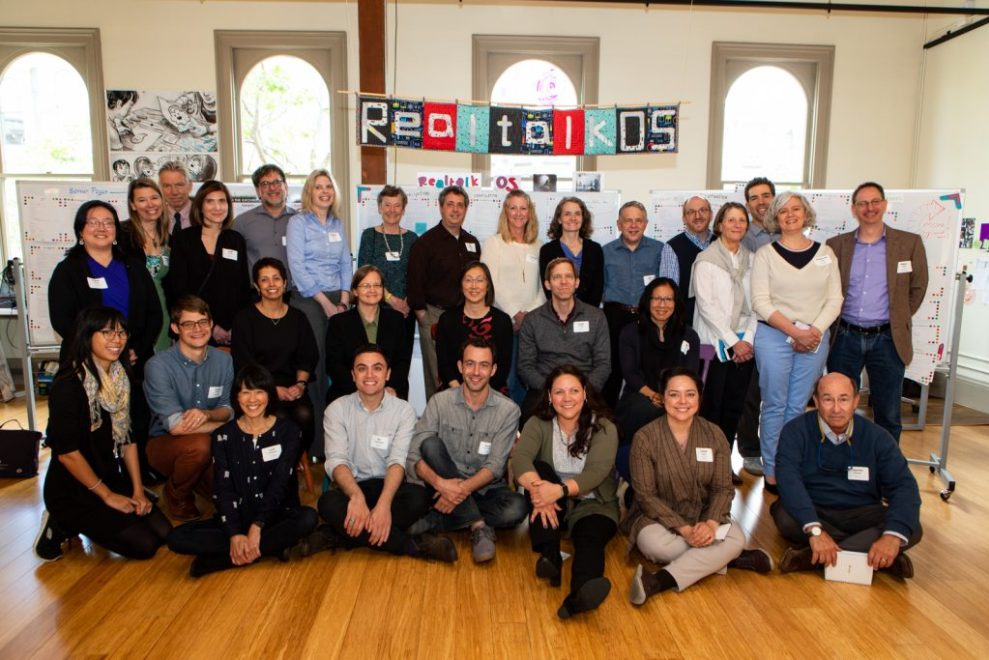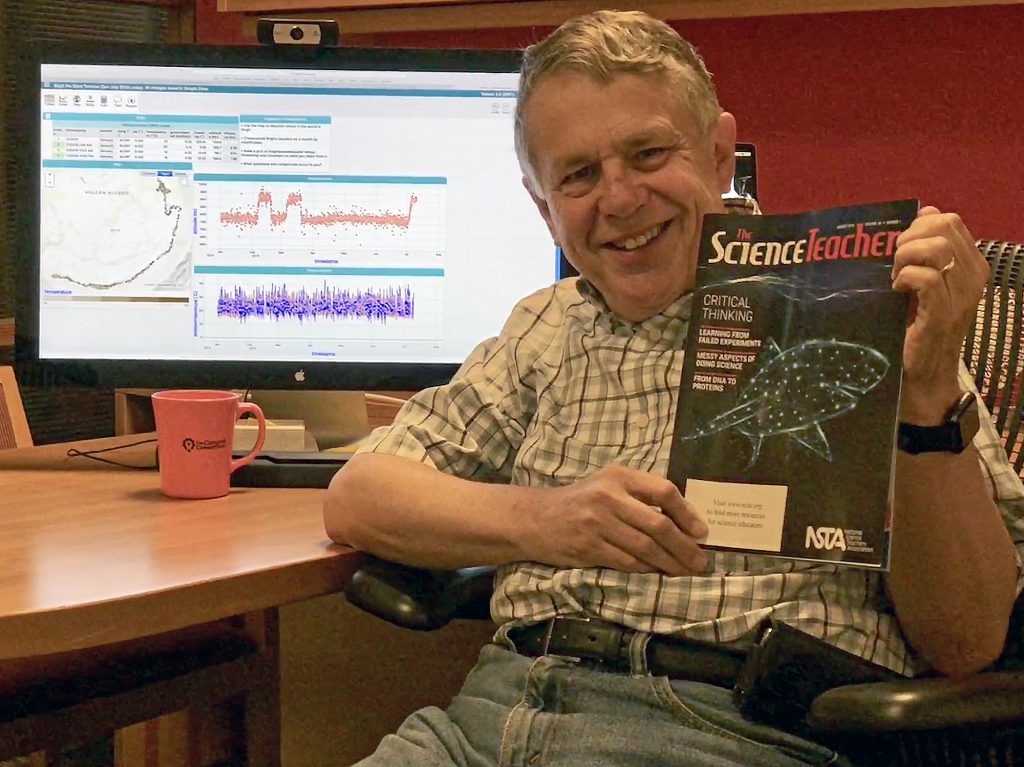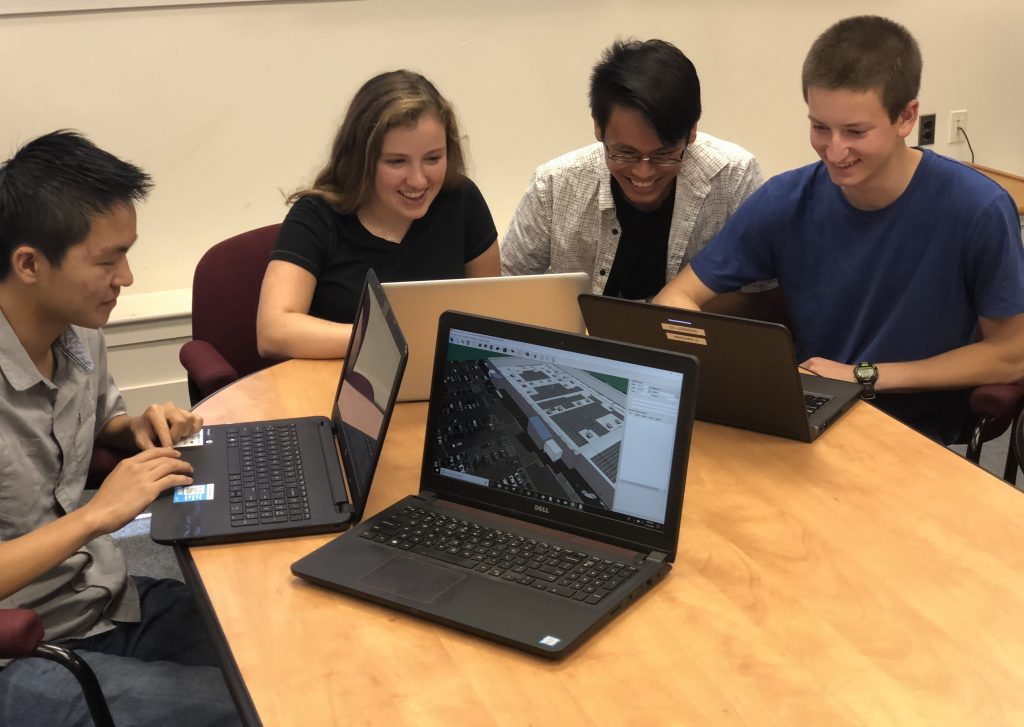Category: Author: Cynthia McIntyre
While a sophomore at Ithaca College, Julia LaCava wrote a novel in a month. Though she had written full-length scripts for homework, this was not a typical class assignment. She had had a story in her head for over a year, complete with a storyboard of all the characters’ emotions and playlists of songs that […]
When Kiley told her father that she had a new position as the Concord Consortium’s scrum master, he asked if she would have to tackle people at work. He calls her the rugby master, but Kiley is used to bad dad jokes. Thanks to recent training, Kiley is indeed a certified scrum master. For the […]
Our East and West Coast offices got together for two days of team building and brainstorming. We demoed our newest technologies, dreamed up new projects, and solved a (fake) murder mystery. We had a great time celebrating our 25th anniversary! Forty-five enthusiastic staff converged at the beautiful Lyman Estate in Waltham, Massachusetts, where we enjoyed […]
In 2018, we made an impact with 11 articles published in researcher and teacher practitioner journals that showcase the state of the field in STEM educational technology. Learn how automated scoring during formative assessment can diagnose and enhance students’ argumentation skills (#4), how modeling and simulation on a CAD platform can be used to teach […]
2018 was a banner year for the Concord Consortium and we’re thrilled to present the year in review with our top 10 news stories. We Launched Designing 2030 to Transform the Future of STEM Teaching and Learning. Our new Designing 2030 initiative will transform STEM teaching and learning to reach more students with educational technology.
The cover article of the August issue of The Science Teacher features an intriguing shiver of sharks, data about those sharks and other marine animals, plus the perfect way to get your feet wet with data analysis: Common Online Data Analysis Platform (CODAP) and Ocean Tracks. Bill Finzer, one of the authors of the Science […]
Four students head to the local park to play cards or Bananagrams on their lunch break. For the rest of the day, they sit quietly around a circular table in our Concord, Massachusetts, office, their computers practically touching around the tight space. Some with ear buds in, they are all focused intently on their screens, […]
When you’re looking up at the solar eclipse on August 21 (wearing appropriate eye protection, of course), you might also be wondering: What else is out there? Black holes, dark energy, life forms? Are we really alone in the universe? This is one of the great unanswered questions for scientists, which is why it’s in […]
In his spare time, Saul Amster likes to program. He’s currently working on a project to turn a tablet into a magic mirror. Yes, like Snow White’s evil stepmother (“Mirror, mirror on the wall…”), except imagine asking the mirror for the day’s forecast or the score of last night’s game. “Programming is an interesting hobby,” […]
Before interning with senior scientist Charles Xie this summer, Maya Haigis had no idea how many solar panel manufacturers there are—“There’s a ton!” A data science major at the University of Rochester, Maya put her analytic skills to work at the Concord Consortium collecting data on solar panels (dimensions, weight, maximum wattage, etc.) and designed […]






